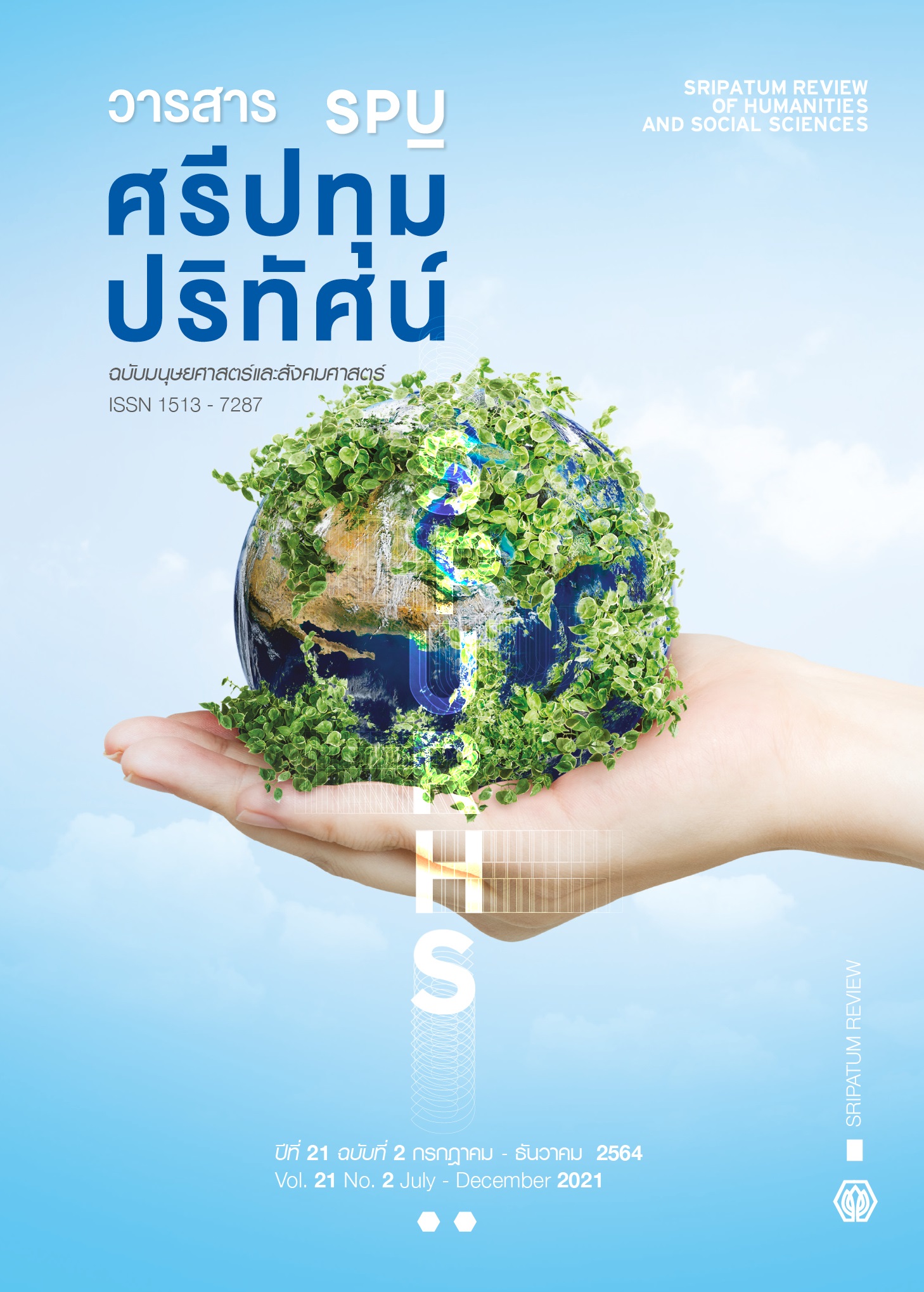Reasons for Philanthropic Belief Formation: A Case Study of Chinese Entrepreneurs
Main Article Content
Abstract
The purpose of this study is to explore how the philanthropic belief is formed for those entrepreneurs who are keen on philanthropy under the special national conditions of failure of tax laws to provide incentives for philanthropy, low public trust in philanthropy and lack of philanthropic culture. In this study, 14 charitable in 14 cities of 12 provinces in China were in-depth interviewed. Through constant analysis of the data, it was found that entrepreneurs who were keen on philanthropy had the following attributes: holding concurrent political posts, goodness-oriented personality traits, and insights into philanthropy. These 3 attributes facilitated the formation of their philanthropic beliefs. It was philanthropic beliefs that contributed to proactive philanthropic behaviors of entrepreneurs, while those without philanthropic beliefs neglected philanthropic behaviors. This study contradicts the perspective frequently used in the previous studies, which means that entrepreneurs’ philanthropy focuses on the perspective of “self-interest” motivations, such as seeking economic motivation or obtaining political resources; instead, it contributes to a deep understanding of the authentic motivations and influencing factors behind charitable donations of entrepreneurs. Therefore, it shows certain theoretical innovations. It also provides important theoretical guidance and practical significance to promote the sound development of corporate philanthropy.
Article Details
1. กองบรรณาธิการสงวนสิทธิ์ในการพิจารณาและตัดสินการตีพิมพ์บทความในวารสาร
2. บทความทุกเรื่องจะได้รับการตรวจสอบทางวิชาการโดยผู้ทรงคุณวุฒิ แต่ข้อความและเนื้อหาในบทความที่ตีพิมพ์เป็นความรับผิดชอบของผู้เขียนแต่เพียงผู้เดียว มิใช่ความคิดเห็นและความรับผิดชอบของมหาวิทยาลัยศรีปทุม
3. การคัดลอกอ้างอิงต้องดำเนินการตามการปฏิบัติในหมู่นักวิชาการโดยทั่วไป และสอดคล้องกับกฎหมายที่เกี่ยวข้อง
References
Chen, Y., Wu, Z., and Li, M. (2015). Tax incentives for charitable donationsin American companies. China Market, 46 (11), 34-58.
Du, X. , Guo, J. , and Lei, Y. (2009). The interest relationship of corporate stakeholders: conflict or integration. Journal of Shanxi University of Finance and Economics, 31(6), 59-65.
Ding, Y. (2012). Problems and Countermeasures of China's Corporate Charitable Donations. Science and Technology Information, 33(6), 65-69.
Fu, Z., and Zhang, C. (2007). Why Chinese Entrepreneurs Can't become Chartable? Chinese and Foreign Management, 1(3), 20.
Guo, P. (2014). Promoting tax incentives and policy improvements for charitable donations. Tax and Economic Research ,19 (2), 24-28.
Godfrey, P. C. (2005). The relationship between corporate philanthropy and shareholder wealth: A risk management perspective. Academy of management review, 30(4), 777-798.
He, J., and Ma, S. (2017). On the Justice Dimension of Entrepreneur's Charity. Zhejiang Social Sciences , 2(2), 112-117.
Hambrick, D .(2007). Upperechelons theory: Anupdate. Academy of Management Review, 32 (2), 334-343.
ifeng.com. (2020). Half-moon Talk: Dali Doesn't Make Reason! ‘Cut Hu 'Masks Are Meaningless and Illegal. [Online]. Retrieved February 10, 2020, from: https://www.weibo.com/2615417307/IsWbX6knA?type=comment#_rnd1581135849255
Kong, L., and Li, J. (2018). Research on Charitable Tax Incentives of Listed Companies: A Case Study of Listed Companies in Gansu Province. Journal of Hubei University of Economics (Humanities and Social Sciences), 15(2), 56-58.
Kang, Z., and Wang, C. (2018). Research on the Impact of Corporate Charitable Donations on Corporate Capital Structure. China Price, 12(12), 42-45.
Lu, C., Wu, J., and Zheng, B. (2016). An Empirical Analysis of the Impact of Corporate Income Tax Policies on Corporate Charitable Donations: A Case Study of 662 Listed Companies in China's A-Share Transactions in 2014. Economic and Management Review, 32 (3), 110-117.
Margolis, J. D., and Walsh, J. P. (2001). People and Profits ? The search for a link between a company’s social and financial performance. Mahwah, NJ: Lawrence Erlbaum.
Pan, Y., Wen, R. and Liu, S. (2017). The selfish goodwill: New evidence from corporate philanthropy in typhoon. China Industrial Economics , 5(5), 133-151.
Pandit, N. R. (1996). The creation of theory: A recent application of the grounded theory method. The qualitative report , 2 (04), 1-15.
Song, B. (2018). Reform of corporate income tax system and development of charity. Finance and Accounting Newsletter , 8(3), 123-124.
Sun, W., and Wang, D. (2013). Analysis of corporate charitable donations based on social responsibility. Chinese and foreign entrepreneurs, 21 (8), 237-238.
Sun, Y. (2016). Functional obstacles and improvement paths of the social assistance operation mechanism. China Administration, 10 (10), 40-44.
Sina Finance. (2020). Woman reselling government donated masks? Official Late Night Bulletin: Investigating! Donors responded. [Online]. Retrieved March 6, 2020 , from : http://www.lcjy.sd.cn/news/60497.html
Sina Finance. (2020). Cao dewang donated another 40 million yuan to help small and micro businesses, with a total contribution of about 12 billion yuan. [Online]. Retrieved February 28, 2020, from: https://finance.sina.com.cn/chanjing/gsnews/2020-02-26/doc-iimxyqvz5836847.shtml
Wang, L. (2009). From the perspective of Weber's theory of social action, China's corporate charitable donation behavior-reflections caused by the Wenchuan earthquake. Social Science Forum, 5 (2), 94-96.
Wang, G. (2010). Who directed the American charity show. Social and Public Welfare, 3(9), 82-84.
Xiao, Q. (2011). Research on the status, characteristics and development countermeasures of corporate charitable donations in Qingdao. Journal of Qingdao University of Science and Technology (Social Sciences), 27 (1), 60-65.
Xie, Y., and Ding, J. (2015). From Survival Relief to Development Relief: The Development Dilemma and Perfecting Path of China's Social Assistance System. China Soft Science , 11(11), 39-49.
Xu, K., and Xie, X. (2014). Thoughts on the Construction of Charity Culture in China. Knowledge Economy ,9 (5), 44-45.
Yuan, J., and Gao, H. (2009). Comparison of Chinese and American Corporate Charitable Donations from the Perspective of Corporate Social Responsibility. Thesis of the Degree of Doctor of Philosophy, (Unpublished doctoral dissertation). China: Party School of Qingdao Municipal Committee of the Communist Party of China.
Yin, R. K., (2002). Case Study Research: Design and Methods. Thousand Oaks, CA: Sage.
Zhang, F., and Hu, G. (2012). Thinking on Optimizing Tax Deductions for Charitable Donations in Chinese Enterprises. Economic Research Reference, 42 (7), 20.
Zhou, Z. (2013). Moral Evaluation of Entrepreneur's Charity. Journal of Shanghai University of Finance and Economics, 15(2), 3-9.
Zheng, D. (2013). Analysis of charitable behavior of private enterprises in Wenzhou . Thesis of the Degree of Master. China: Wenzhou University.


